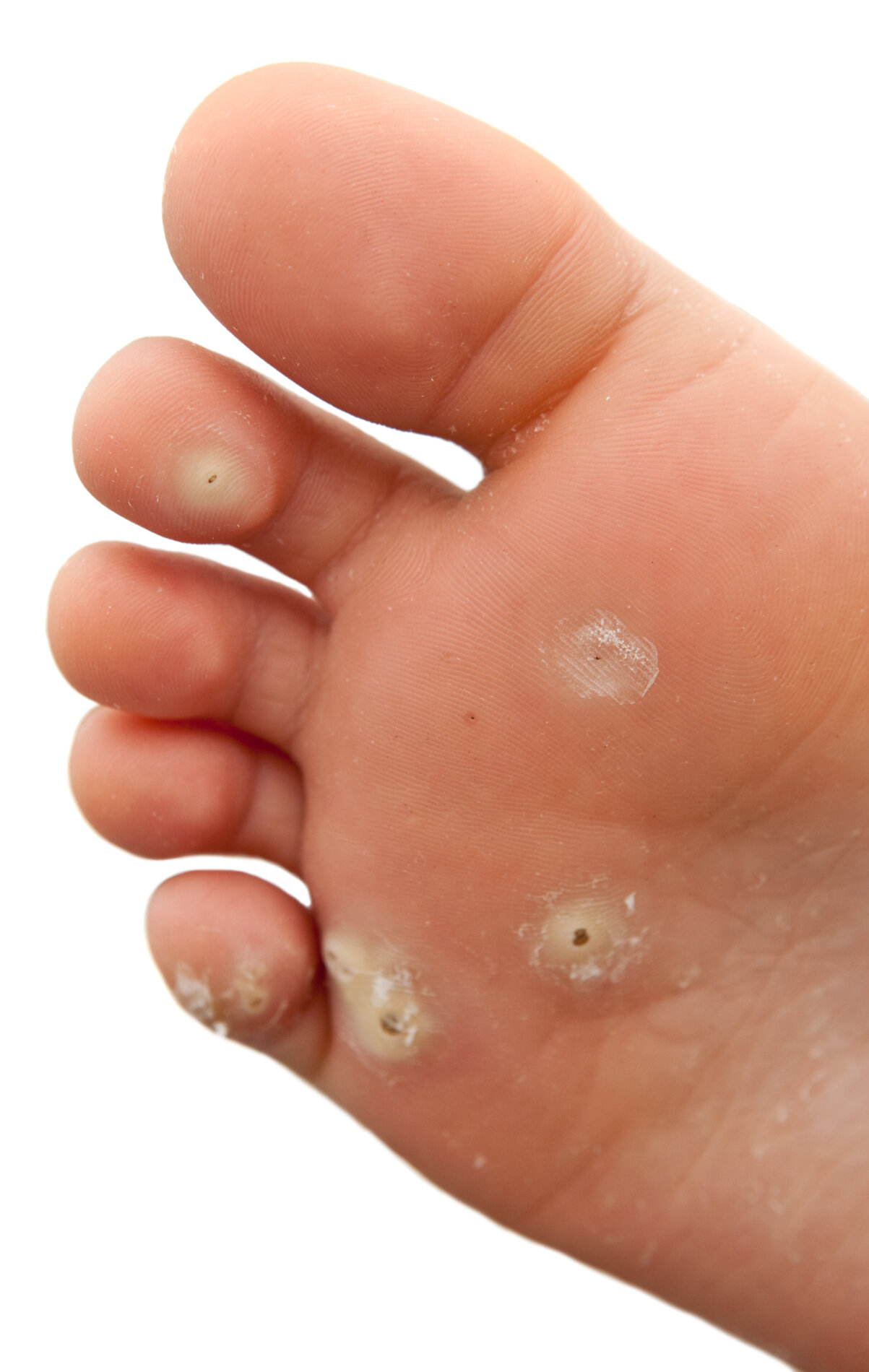Warts
Warts are very common and contagious skin growths caused by the human papillomavirus (HPV). They can appear anywhere on the body but are commonly found on the feet and hands. You can develop a wart after direct contact with an infected person or a contaminated object. Anyone can develop a wart, but they are most common in children.

Symptoms
Typically, a wart is a persistent, small and rough bump on the skin. Warts can be flesh colored, white, pink or sometimes brown. While warts are typically asymptomatic, large warts or warts that exist on pressure points of the hands and feet can be painful.
Treatment
Warts sometimes go away on their own, and there are effective over-the-counter treatments. For persistent lesions, the providers at BV Derm can administer topical or injectable medications, cryotherapy, or perform a surgical procedure. Warts can be stubborn and often require more than one treatment.
When to make an appointment
If your warts do not resolve with over-the-counter treatments, if they continue to spread or are painful, Contact us to discuss treatment options